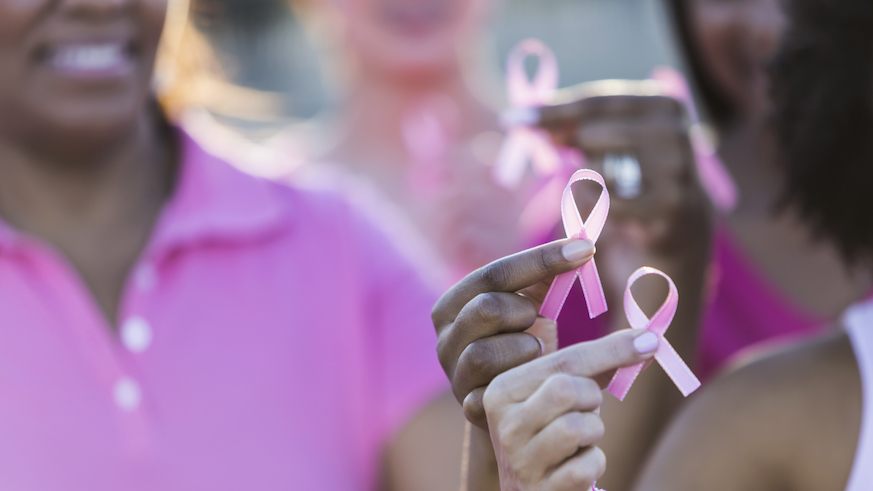“One in 8 women will get breast cancer. Today, I’m the one.” With those words, Emmy-winning actress Julia Louis-Dreyfus announced to the world last week via Twitter that she’d received the diagnosis every woman fears.
Breast cancer has become almost synonymous with the month of October; between races for the cure and marketers hawking special-edition products, it would be difficult not to know about it. Perhaps this year’s most absurd well-meaning product is from “bulk materials handling” company Martin Engineering, which is donating $50 from the sale of each of its pink “truck vibrators” to the Susan G. Komen Foundation.
Despite all the get-out-the-mammogram efforts, breast cancer still kills: According to Breastcancer.org, 40,610 women in the U.S. will die from it this year. We talked to Dr. Sarah P. Cate, director of the Special Surveillance and Breast Program at Mount Sinai Downtown-Chelsea Center, for some more information.
How common is breast cancer in the U.S.?
One in eight women will be diagnosed with breast cancer in their lifetime in the United States. In 2017 alone, there are estimated to be 252,710 new diagnoses of invasive breast cancer alone. An additional 63,410 new diagnoses of noninvasive breast cancer are also estimated for 2017.
What are the risk factors?
Most breast cancers are multifactorial in etiology, which means that they happen for a variety of reasons. Some of the well-established risk factors include never having a child; certain forms of abnormal breast biopsies; genetic mutations such as the breast cancer genes, (BRCA 1 and 2), or other genetic mutations like Chek 2 and PALB2; obesity; and hormone-replacement therapy by mouth for four or more years after menopause.
Is it preventable?
Some breast cancers are preventable, like those caused by the BRCA gene. Patients who are diagnosed with a BRCA mutation may choose to have prophylactic mastectomies. This does not completely eliminate the risk but greatly reduces it. We know that it is a matter of time before those patients with a BRCA mutation get breast cancer. Therefore, it is strongly advised to not wait to get the breast-cancer diagnosis but rather to reduce your risk by having surgery.
There are certain modifiable risk factors — like obesity, hormone-replacement therapy and alcohol consumption — that patients can control.
What are the symptoms?
Some breast cancers are only seen on imaging, like mammograms or ultrasounds. Therefore, it is strongly advised to have annual mammography starting at age 40 for average-risk patients.
Some other breast cancers, usually in patients who are not getting annual breast imaging, present as a hard mass. This will feel like a nut in the breast. Some other rare breast cancers present with skin changes, where the skin looks like the peel of an orange. Patients may also feel a lump in their armpit, and that can be the presentation of some breast cancers.
What is the survival rate if caught early enough?
Early-stage breast cancers, such as those diagnosed via mammography, have survival rates of 90 percent and upward. The greatest survival rates are seen with those cancers which are diagnosed via mammograms and ultrasounds.
Who should be tested for the BRCA gene?
Anyone with a strong family history of breast or ovarian cancer should be tested for the BRCA gene. This means any first-degree relatives who are diagnosed with breast cancer under age 50, or any relatives diagnosed with ovarian cancer at any age. … Additionally, anyone diagnosed with breast cancer under the age of 50 should be tested for the BRCA gene.
How is it treated?
Breast cancer is treated with a combination of surgery, radiation, chemotherapy and something called anti-hormonal treatment. Some patients need all four modalities of treatment, and some only need one or two. Every breast cancer is approached individually, and requires a unique approach.
Is breast cancer more common among women who have had ovarian cancer or vice versa?
Breast cancer is linked with ovarian cancer via the BRCA gene. Anyone who has had ovarian cancer should be tested for the BRCA gene. However, having ovarian cancer without a BRCA mutation does not make you more likely to get breast cancer.
























